Join our newsletter
By subscribing you agree to our Privacy Policy
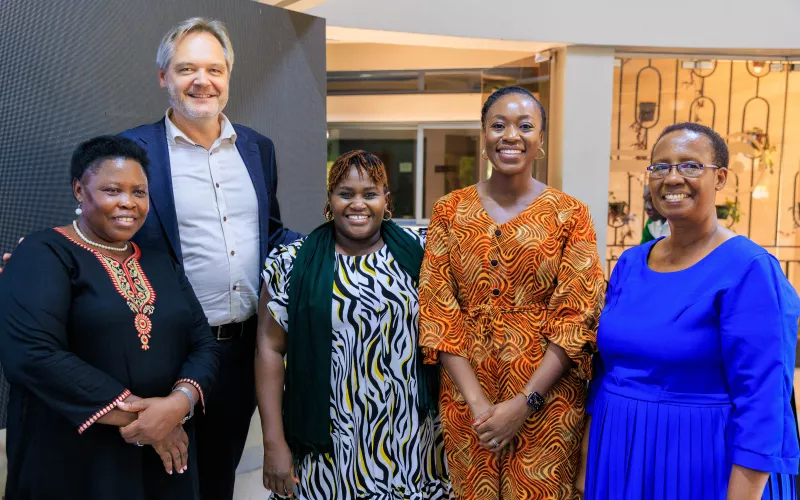
Despite making great strides in primary education enrolment following the introduction of Universal Primary Education, many primary school learners in Uganda are unable to read at grade level. Recent national assessments showed that only 42.7 percent of Grade six learners were grade-level proficient in English literacy, whereas 58.0 percent were proficient in numeracy.
Teaching at the Right Level (TaRL) is a rigorously evaluated approach to accelerating children’s learning outcomes. Developed and refined in India by Pratham and J-PAL, it has been piloted and scaled in over 15 countries across Africa since 2015. Based on strong evidence for its cost effectiveness, TaRL has been identified as a ‘great buy’ by the Global Evidence Education Advisory Panel.
Since 2020, VVOB has supported the Ministry of Education and Sports (MoES) and district local governments in Isingiro, Madi-Okollo, and Terego (funded by UNICEF), Adjumani (funded by the LEGO Foundation), and Kasese (funded by the Hempel Foundation) in piloting government-led TaRL projects where the final concept was tested and finetuned. During these pilot projects, external process evaluations provided insights that were used to refine the model, ensuring it aligns with the needs and feasibility of effective implementation within Ugandan government systems. As a result, the new model became now a fully developed, ready-to-scale solution for expansion into other regions of Uganda. The successes of these pilot projects in significantly improving literacy and numeracy learning outcomes of Grade three to Grade five learners led the MoES to validate the strategy for scaling and sustaining the contextualised, school-based, government-led TaRL model in Uganda under the name “UCatchUp” in June 2023.
In Kasese, 2025 marks a significant milestone in the UCatchUp scaling journey with the transition from the pilot phase to the district implementation phase. During this phase, all 264 government-aided primary schools in the district and municipality will benefit from UCatchUp, with district and municipal authorities assuming key roles and responsibilities for successful implementation, shifting away from VVOB’s direct involvement. This moment presented an opportunity to celebrate the achievements of the pilot phase while looking forward to the next stages of scaling.
To celebrate the milestone, the MoES, together with the Hempel Foundation and VVOB, hosted the ‘Scaling Up UCatchUp in Kasese and Beyond’ event. This gathering of over 100 partners was united by one goal: improving foundational learning for every Ugandan child.
The event opened with a powerful message from Dr Safina Mutumba, Principal Education Officer, who represented Dr Cleophus Mugenyi, Commissioner of the Basic Education Department. She set the tone, reminding everyone of the road travelled and the work still ahead: “We must continue to invest, not just funds, but political will and leadership if UCatchUp is to become a cornerstone of Uganda’s education system,” she said.
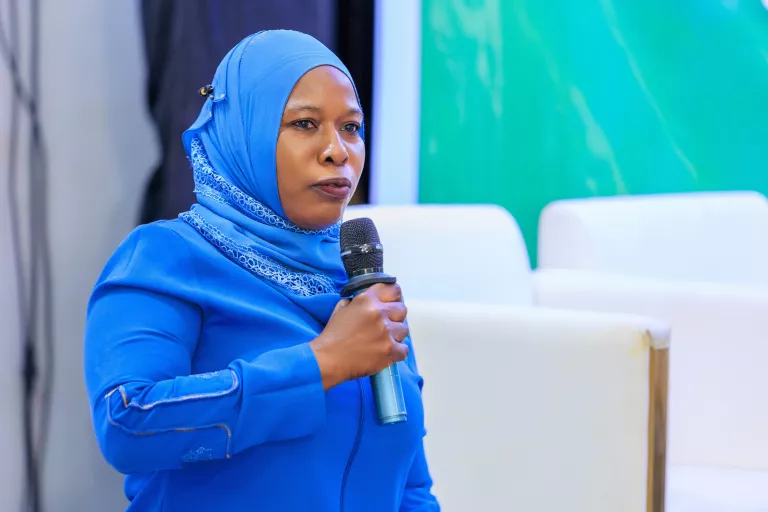
Her sentiments were echoed by Elizabeth Mbattudde, Assistant Commissioner for Pre-Primary Education, representing the Permanent Secretary, Dr Kedrace Turyagenda. She highlighted the success of the TaRL approach in pilot districts and issued a challenge to the room: “Now is the time to scale. Let us strengthen our policies, increase funding, and deepen our partnerships. We’ve seen what works. Let’s make it work for every child, everywhere.”
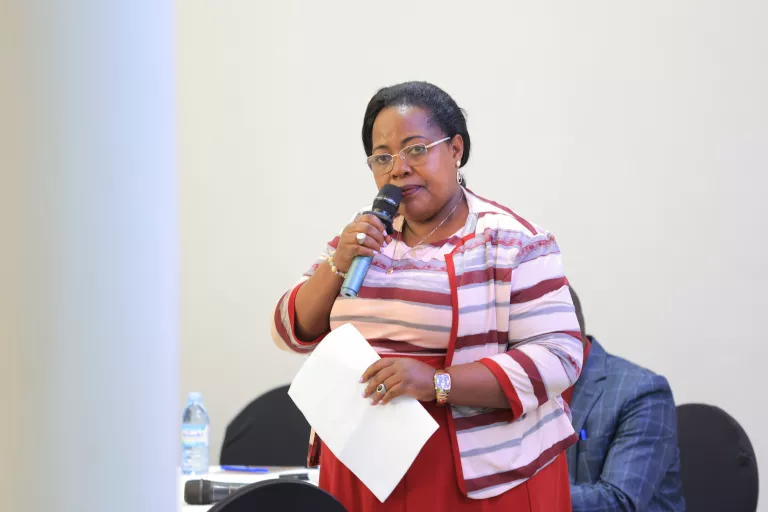
Kennedy Jumanyol, Senior Research Officer at the Uganda National Examinations Board, presented findings from the 2023 National Assessment of Progress in Education to ground these aspirations in evidence. The data on P3 and P6 learners' achievements in literacy and numeracy was sobering — and motivating.
His recommendations were clear: promote teacher training, target rural and refugee-hosting schools with additional resources, and design specific interventions for learners with special needs. “We cannot ignore the data,” he said. “We must act, especially to reverse the downward trend in literacy and ensure no child is left behind.”
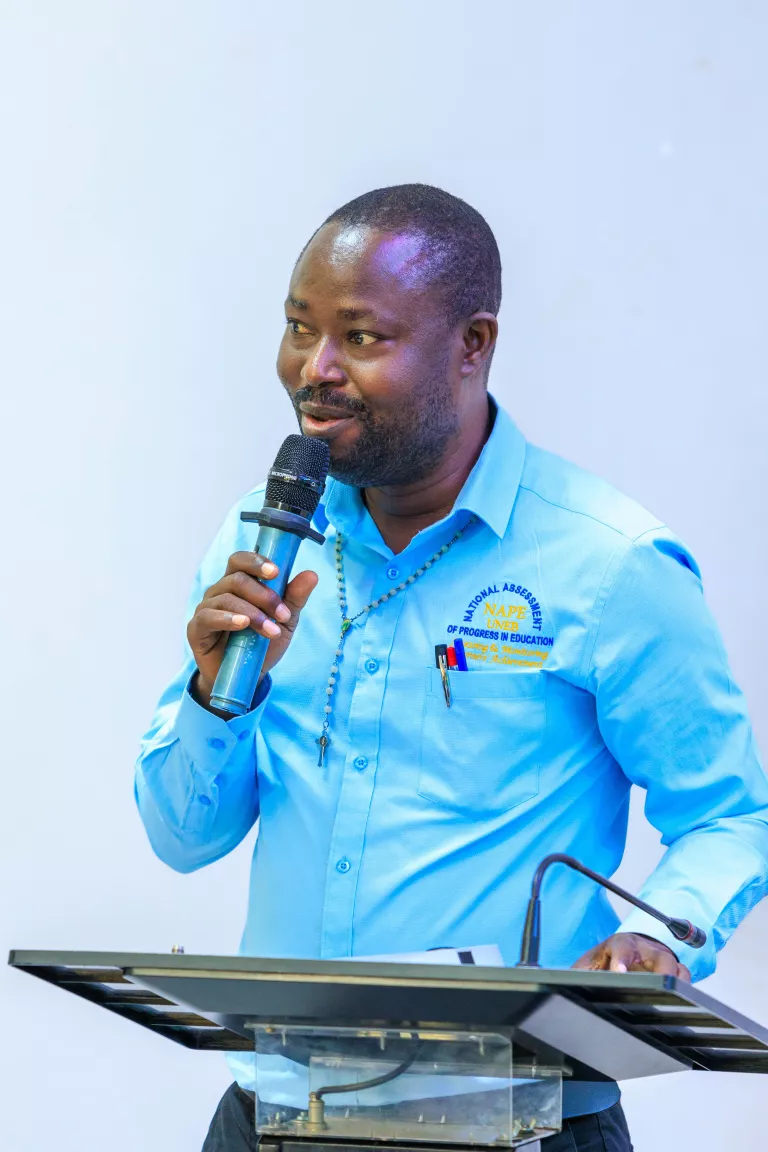
The technical backbone of UCatchUp is built on the TaRL approach, and Joan Ngugi, Project Coordinator at TaRL Africa, shared how they are working alongside governments and partners to drive sustainable scale. “We focus on building capacity and continuous learning,” she explained. “VVOB’s commitment to quality and collaboration has been vital in putting the programme on the right path.”
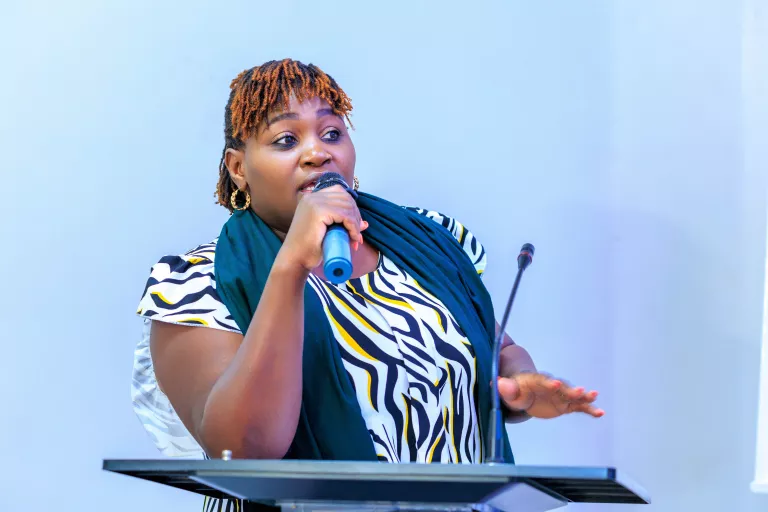
The event featured two panel discussions. The first explored how collaboration and a systems-based approach are enabling UCatchUp to grow beyond a pilot.
UNICEF’s Stella Chandiru stressed the importance of integrating teacher training institutions and government systems for long-term sustainability. VVOB’s Kakula Wandi spoke about the value of contextualising the approach to Uganda’s unique education landscape, while Rachel Hopkins from Save the Children shared promising results from implementing Catch-Up Clubs, from increased learner confidence to improved retention.
The second panel zoomed in on the Kasese experience, emphasising the importance of gradual government ownership and standardisation.
Joseph Twinomujuni, Deputy Principal Outreach of Canon Apolo Primary Teachers’ College, and Ernest Thabugha, District Education Officer, outlined the importance of aligning with government policies, engaging stakeholders early, and ensuring strong quality assurance mechanisms.
Other panellists, including teachers, headteachers and UCatchUp mentors, also advocated for important policy considerations: integrating UCatchUp into school timetables, expanding to private schools, and scaling to additional districts.
When remedial education is owned by government and embedded in the school day, it doesn’t just boost learning, it transforms it.
In her closing remarks, Dr Annette Mugisha, Assistant Commissioner in the Teacher Education and Training Department, celebrated the commitment of all partners.
“We cannot have quality education without quality teachers,” she reminded the audience. “Professional development is key, and VVOB has been instrumental in this. But we must also recognise and support our Centre Coordinating Tutors (CCTs) — they are the backbone of teacher growth.”
She concluded with a call for collaboration, consistency and courage — inviting everyone present to play their part in building a stronger education system.
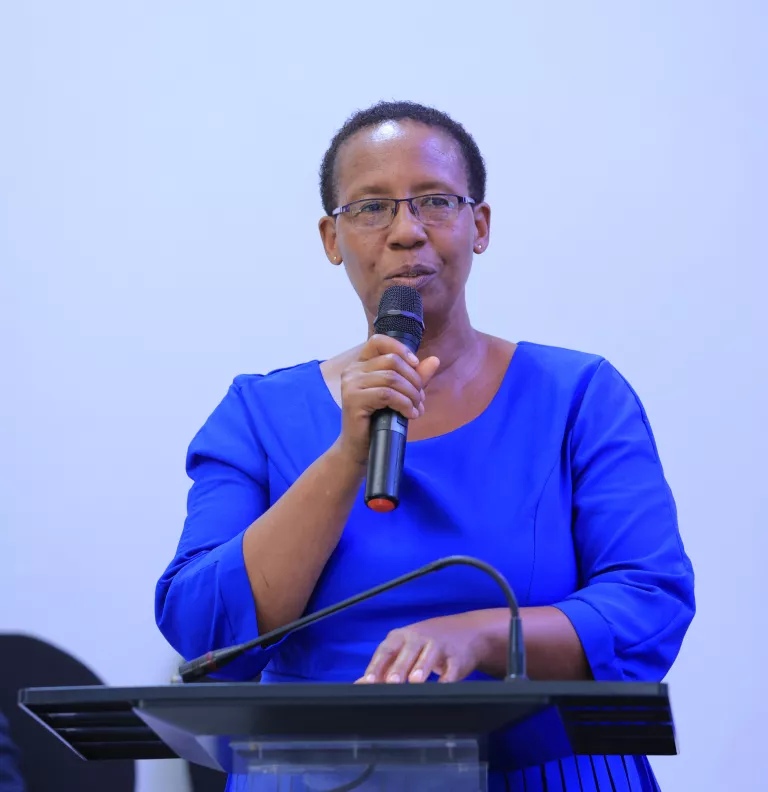
The climax of the event was the presence of the State Minister for Primary Education, Dr Joyce Moriku Kaducu, a long-standing champion of the UCatchUp programme. Her support for VVOB's work has been unwavering. This was most recently demonstrated in an op-ed published in the Daily Monitor, where she commended the programme's impact on foundational learning.
Seeing VVOB’s contribution recognised at such a high policy level is a powerful affirmation of the dedication shown by our team, partners, and the educators driving this work on the ground. When a national leader amplifies your work, it sends a clear message: change is not only possible but it’s happening.
The journey from pilot to full-scale implementation in Kasese is proof that when government, partners, and communities come together, we can transform education in Uganda. The time to scale is now. And with your continued support, every child in Uganda can catch up — and thrive.
By subscribing you agree to our Privacy Policy
Julien Dillensplein 1 bus 2A
1060 Brussels
Belgium